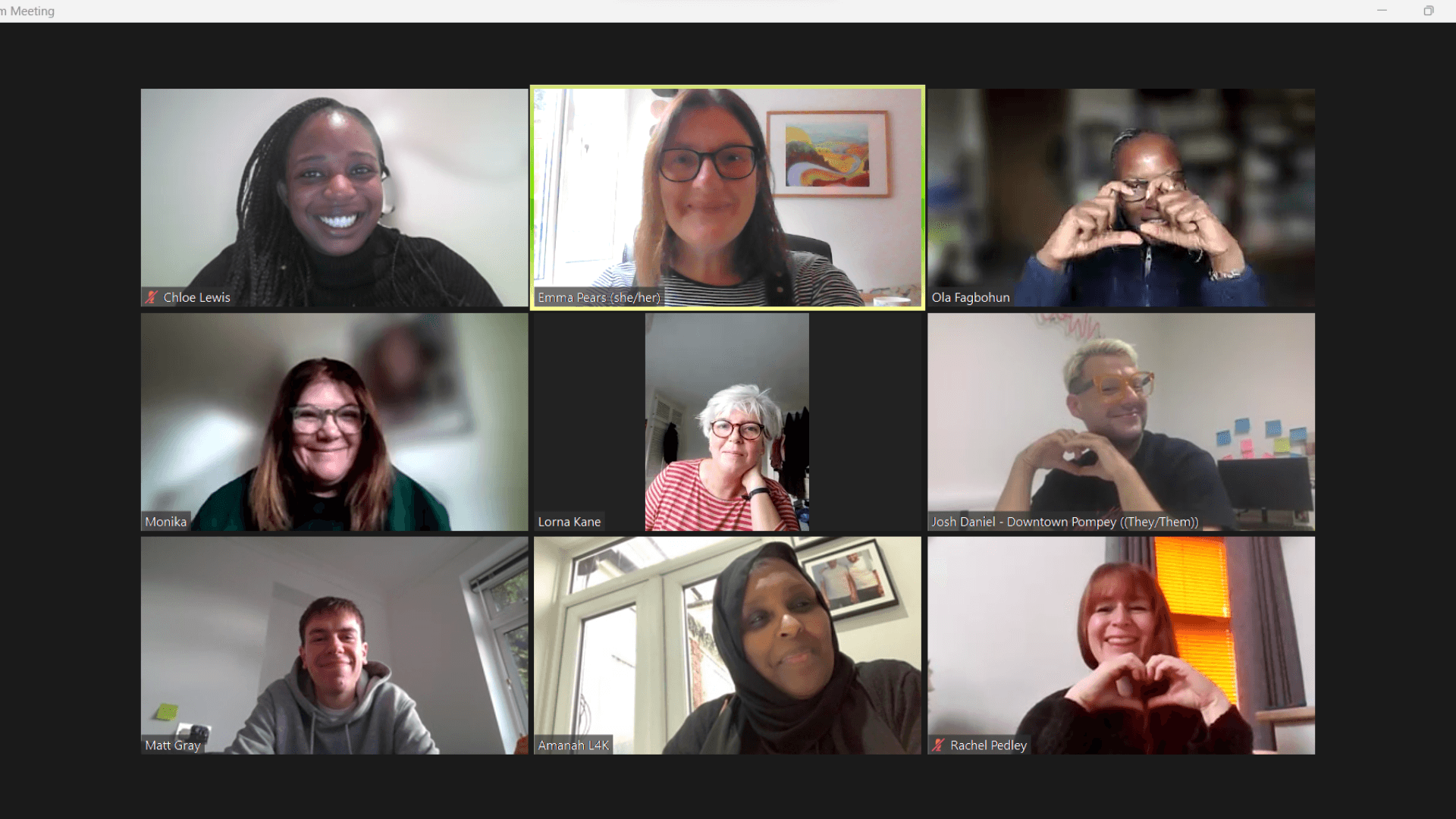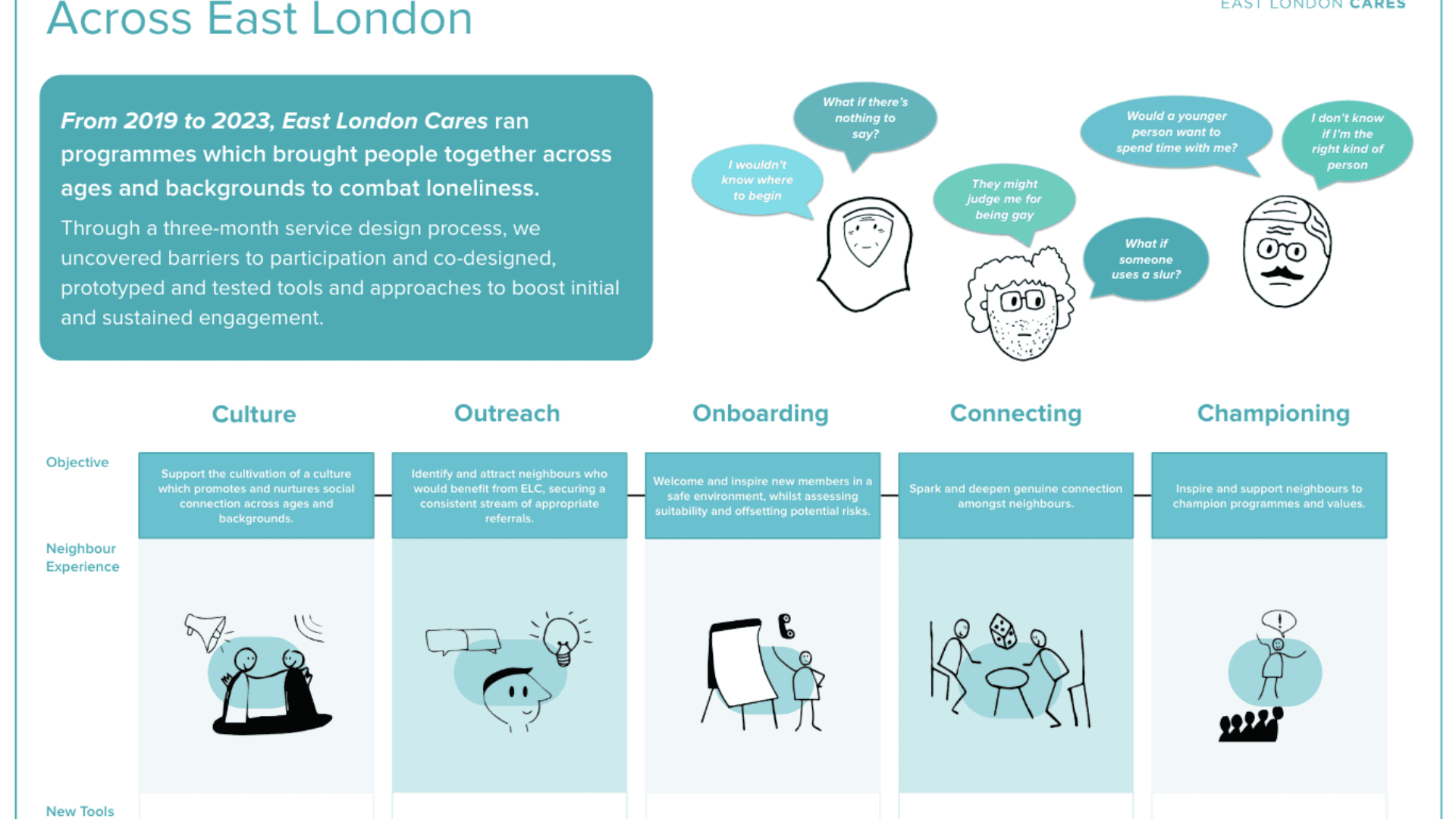
A wave of connection
Posted by The Cares Family on 20th June 2019
Please note: this post is 69 months old and The Cares Family is no longer operational. This post is shared for information only
After a childhood in rural Suffolk and studying in Edinburgh, I arrived in London eight years ago and threw myself at city life with abandon: I worked hard, played even harder and slept little. So it was in late 2017 that I learned the hard lesson that my friends and family had been trying to convince me of for my entire life: I am not invincible.
Focused on the immediate pressures of setting up and running The Jo Cox Foundation in memory of my friend, I missed the warning signs. It was my neighbour, Glenn, who pointed out that I didn’t look quite myself, triggering me to go to the GP. Just weeks later I was preparing for surgery to remove a fibroid from my womb, which I had let go unnoticed for such a long time that it had grown larger than the womb itself. Non-cancerous but vicious in its own way, it had left me bloodless, extremely anaemic and was robbing my organs of oxygen.
Glenn and I had met just a year earlier. I’d moved into a flat with a friend in a housing estate in Battersea, south London. Originally from Jamaica, Glenn had lived in London for decades and owned his flat for over 20 years. It was once he retired from being a tube driver a couple of months later that we really began to hit it off: my flatmate had a girlfriend on the other side of London and was away with work a lot so it was Glenn who became the constant in my day-to-day life.
I’d totter in and out of the flat at the crack of dawn and late at night, clip clopping down the concrete walkway in my heels, waking everyone up and earning the nickname Michael Flatley – I like to think it was affectionate, but I could never be sure. Every couple of days Glenn would pop his head out to say hi and we’d hang out on the walkway, having a quick catch up about our days and occasionally sharing one of his delicious but deadly rum cocktails.
I had set up The Jo Cox Foundation with Jo’s family just over a year earlier and together we were campaigning hard to raise the profile of loneliness and build stronger, closer communities to tackle it through initiatives like The Great Get Together. But an issue I was so comfortable talking about in meetings with government ministers, MPs and the amazing charities that made up The Jo Cox Loneliness Commission, was one I was ironically reluctant to talk about personally. The complex struggles of running an organisation for the first time and my deteriorating health left me feeling inadequate, unable to cope and isolated.
For millions, this is a familiar story. Loneliness is the chasm that opens up when the social connections we have aren’t of the quality or quantity of the connections we need or want. 14 per cent of people feel often or always lonely – with those aged 16 to 24 feeling most often and most intensely so.
Loneliness robs us of perspective and causes our closest bonds – and so our safety nets – to fray, leaving us cut out and cut off. In our communities, disconnection can undermine integration as people disengage. Eating away at empathy, solidarity is eroded and dislocation creeps in.
Humans are social beings, so loneliness is a challenge as old as humanity itself. But globalisation, gentrification, digitisation and automation are playing havoc on the way we connect at home, at work and during leisure time. We share fewer family meals; increasingly connect online instead of face- to-face; increasingly work outside of traditional team environments; increasingly shop online; are less faithful and religious; and are less likely to belong to a trade (or any other kind of) union.
But as the voices in this pamphlet show, it’s not all doom and gloom.
There are millions of individuals, groups, communities, charities and businesses across the UK working tirelessly to bring people together by creating spaces and places for relationships to thrive. These people are building a new social infrastructure: blowing away the cobwebs of loneliness with everyday conversations and enabling people to do what people do best – connect.
What links all these stories is the belief in the power of human relationships. And it’s those relationships that unleash the power of what Jo Cox passionately articulated in her maiden speech in parliament: the belief that we have more in common than that which divides us.
In supporting Jo’s family to build her legacy we knew that government had a role to play in leading the shift towards stronger connections and I’m proud to have played a part in the work her colleagues Rachel Reeves MP and Seema Kennedy MP and The Jo Cox Loneliness Commission led in lobbying for the appointment of the Minister for Loneliness. But real connection, and real community, exist miles from Westminster – in the neighbourhoods, experiences and stories of people being with people. This pamphlet is just the tip of the iceberg.
Human relationships matter and they matter enormously in times of challenge and change. Each of the moments of connection described in this pamphlet might feel random on their own, almost a mistake or a by-product of something else. But taken together, they show that there is a ripple of connection that is stronger than the forces that are atomising communities. It’s our job to turn that ripple into a wave.
Iona Lawrence has been with The Cares Family for the past ten months, developing new ideas to bring communities together. She was formerly Founding Director of The Jo Cox Foundation.
This article is part of the pamphlet Finding connection in a disconnected age: stories of community in a time of change, published in partnership with Nesta.


